I can't seem to get the values from the OutputClaims from my return object after making a REST API call to show up in the JWT token. I've tried this when I return a single string it works fine, but this is returning an object that looks like this from my B2CResponseModel object.
Do I have to do some kind of of mapping in the custom policies to match my return object or is there a way for me to just pull a value like I am trying to do below? Thanks!
TrustFrameworkExtensions.xml
<TechnicalProfile Id="REST-UserMigration-LocalAccount-SignUp">
<DisplayName>Migrate user sign-up flow</DisplayName>
<Protocol Name="Proprietary" Handler="Web.TPEngine.Providers.RestfulProvider, Web.TPEngine, Version=1.0.0.0, Culture=neutral, PublicKeyToken=null" />
<Metadata>
<Item Key="ServiceUrl">https://*******/LocalAccountSignUp</Item>
<Item Key="AuthenticationType">ApiKeyHeader</Item>
<Item Key="SendClaimsIn">Body</Item>
<Item Key="AllowInsecureAuthInProduction">True</Item>
</Metadata>
<CryptographicKeys>
<Key Id="Ocp-Apim-Subscription-Key" StorageReferenceId="B2C_1A_RestApiKey" />
</CryptographicKeys>
<InputClaims>
<InputClaim ClaimTypeReferenceId="email" PartnerClaimType="signInName"/>
<!--AM Added-->
<InputClaim ClaimTypeReferenceId="signInName" />
<InputClaim ClaimTypeReferenceId="password" />
<InputClaim ClaimTypeReferenceId="objectId" />
<InputClaim ClaimTypeReferenceId="newPassword" />
<InputClaim ClaimTypeReferenceId="reenterPassword" />
.......
</InputClaims>
<!--AM Added-->
<OutputClaims>
<!-- Claims parsed from your REST API -->
<OutputClaim ClaimTypeReferenceId="userMessage" />
<OutputClaim ClaimTypeReferenceId="loyaltyNumber"/>
</OutputClaims>
<UseTechnicalProfileForSessionManagement ReferenceId="SM-Noop" />
</TechnicalProfile>
TrustFrameworkBase.xml
<ClaimType Id="loyaltyNumber">
<DisplayName>Loyalty Identification</DisplayName>
<DataType>string</DataType>
<UserHelpText>Your loyalty number from your membership card</UserHelpText>
</ClaimType>
<ClaimType Id="userMessage">
<DisplayName>User Message</DisplayName>
<DataType>string</DataType>
<UserHelpText>User Message</UserHelpText>
</ClaimType>
SignInSignup.xml
<RelyingParty>
<DefaultUserJourney ReferenceId="SignUpOrSignIn" />
<TechnicalProfile Id="PolicyProfile">
<DisplayName>PolicyProfile</DisplayName>
<Protocol Name="OpenIdConnect" />
<OutputClaims>
....
<OutputClaim ClaimTypeReferenceId="userMessage" DefaultValue="" />
<OutputClaim ClaimTypeReferenceId="displayName" />
<OutputClaim ClaimTypeReferenceId="loyaltyNumber" DefaultValue="" />
</OutputClaims>
<SubjectNamingInfo ClaimType="sub" />
</TechnicalProfile>
</RelyingParty>

